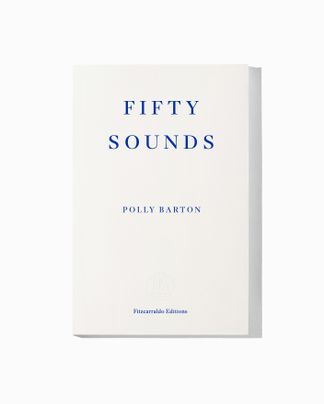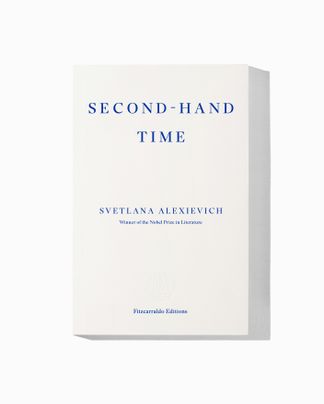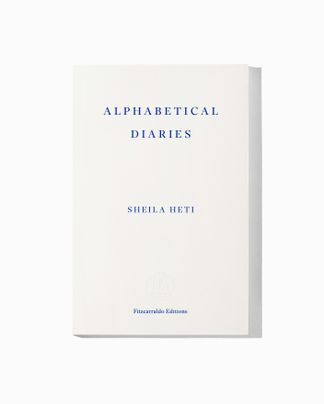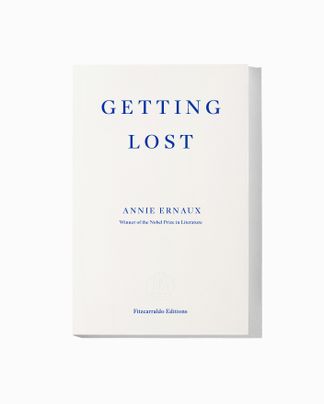How do we talk about porn? Why it is that when we do talk about porn, we tend to retreat into the abstract? How do we have meaningful conversations about it with those closest to us? In Porn: An Oral History, Polly Barton interrogates the absence of discussion around a topic that is ubiquitous and influences our daily lives. In her search for understanding, she spent a year initiating intimate conversations with nineteen acquaintances of a range of ages, genders and sexualities about everything and anything related to porn: watching habits, emotions and feelings of guilt, embarrassment, disgust and shame, fantasy and desire. Soon, unfolding before her, was exactly the book that she had been longing to encounter – not a traditional history, but the raw, honest truth about what we aren’t saying. A landmark work of oral history written in the spirit of Nell Dunn, Porn is a thrilling, thought-provoking, revelatory, revealing, joyfully informative and informal exploration of a subject that has always retained an element of the taboo.
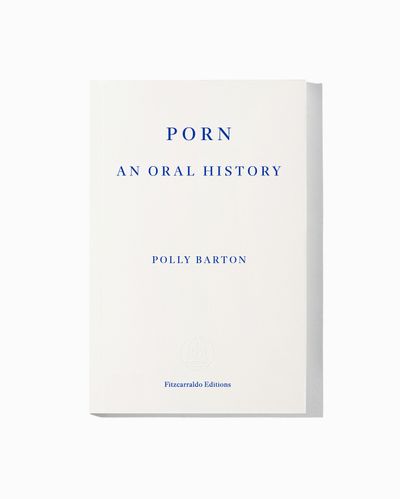
Porn: An Oral History
French paperback with flaps, 368 pages
Published 16 March 2023
Porn: An Oral History
ZERO
Back when I was living in rural Japan, one of my favourite pastimes was hanging out beside the porn section in the local video shop. The video shop was a sizeable place, its numerous racks labelled with all the different categories of film I would have expected to find there, and some more besides, which I wouldn’t. There was the ‘Sekushii’ [Sexy] section, for instance, sandwiched between the very standardly labelled ‘Romantic Comedies’ and ‘Suspense’ racks. This label afforded me great delight when I first managed to read it, and I immediately assumed that this must be the porn, but on further inspection, the rack turned out to contain the kinds of films that to my mind would be best described as ‘eighties erotic drama’. They might have been sexy by name, but they clearly weren’t sexy enough by nature to merit shielding from the eyes of the toddlers who would go thundering down the aisles in search of the newest animation DVD – that was a fate reserved for the porn proper, which had its own separate room, partitioned off from the main shop floor by a pink curtain. This section wasn’t labelled in any way, as far as I could see. I only became aware of its existence one day when I was perusing the box sets on the far wall, and witnessed someone else who was also perusing the box sets with me ostensibly disappear into thin air. Was I losing my mind? Like someone who has witnessed a miracle or a tragedy, I stood rooted to the spot, feigning fascination with the videos in front of me, and a couple of minutes later the disappearing man emerged, now with two see-through plastic cases in hand. As he trotted in the direction of the cashiers, I stood back from the shelves and examined the opening into which he had vanished and from which he had reappeared: sure enough there was a hole in the wall veiled by two pieces of thin pink satin fabric. I must have subconsciously registered it before, and assumed it was some kind of employee-only zone.
From that point on, I became fascinated by the pink curtain dance that the porn-renting men would perform. Now and then I would encounter someone who went swanning in directly, but these intrepid types were the anomaly; the protocol was that you had to stand and pretend to be looking at the box sets, and then, after a surreptitious head-turn or two, slip in sideways between the silky pink folds of the curtain. Almost unfailingly there was a graceful, nigh on ethereal quality to this movement that, held up alongside the array of sights they were no doubt going to see on the shelves of that room, brought me an obscure pleasure. I say ‘no doubt’, because I never myself entered the pink-curtain room. Perhaps subconsciously I wasn’t brave enough, and I feared the interaction if and when I encountered someone else in there. It seemed to me, though, that I just wasn’t interested. I didn’t want to see the rows of DVDs with pictures that would probably make me feel strange and uncomfortable. I just wanted to watch the men as they performed their clandestine ritual, and this I started doing as a matter of course whenever I visited the video shop. I’m fairly sure that my lingering presence by the box-set wall or the neighbouring shelves was perceived as an obstacle, something that made the curtain-slip harder and more embarrassing to execute, and that for me was a point of joy, even pride. I felt no animosity towards the porn-renting men, but neither did I understand why I should cooperate in making their quest any easier. Standing there brought me a faint sense of jubilation, that I think was something to do with feeling the tables had been turned: until that point in my life, I’d felt that porn was a mechanism used to make me feel embarrassed or somehow hemmed in both existentially and physically, or at least, which did make me embarrassed and hemmed in, for a host of reasons that I found it difficult to unravel. Now, I was in a position of inviolability. It was almost thrilling to feel that I was tied to these men’s crusade in some way, a witness to their act of transgression – which was not really a transgression at all. As I watched them heading towards the counter, their footsteps no longer remotely ethereal, I would feel a frisson of nerves as I pictured and vicariously experienced that mortifying interaction. Even I had felt embarrassed in the past when the cashiers had read out the names of the videos I was renting, as they were obliged to do, for no reason other than that they contained a lot of foreign words that I was making them pronounce. How, then, was a person to cope when the words they were enunciating were ‘Edward Penishands’ or ‘Super Hornio Brothers’? Who felt the more embarrassed: the renter or the cashier? Or did neither of them? Was this transaction so humdrum by now that there was no mortification left in it? What percentage of videos taken out here were porn? Did the pink-curtain cupboard actually account for eighty per cent of all rentals? Was it a cupboard, or was it deceptively huge? Was it actually as large as the video shop again? These were the kinds of questions I would ask myself as I stood smirking by the box sets.
(…)
‘[Barton’s] uncertainty is key to the success of her project, opening it up for discussion rather than narrowing around polemic. After finishing the book I found myself talking to friends about porn in a way I never had before…. Much of our contemporary economy is constructed to hook us to online platforms on which porn makes up a vast amount of content, accessible to anyone old enough to work a phone. To avoid thinking about the cultural significance of that is not just absurd, but a denial of both responsibility and reality. Barton wants to restore our ability to deal with this stuff, and the first step, as she puts it, is to talk about it.’
— Sophie Elmhirst, Sunday Times ‘Book of the Week’
‘Barton’s triumph is that she has [talked honestly about porn] and it is the most luminous thing in the book…. This book will stay with me.’
— Tanya Gold, Telegraph
‘Barton allows her 19 interviews to unfold with little editing or comment, painting a much more intimate picture. The chapters, one for each interviewee … flow like a fly-on-the-wall documentary.’
— Patricia Nilsson, Financial Times
‘I found my time with Porn: An Oral History unexpectedly moving. Barton’s candid, generous style as an interlocutor allows her subjects to move fluidly between their sometimes contradictory instincts and intellectual approaches in a way which feels revelatory and totally honest and human. A pleasure to read, and a vital new work for anyone interested in sex and its representation.’
— Megan Nolan, author of Acts of Desperation
‘I wasn’t expecting nineteen conversations about porn to make me feel as I felt after reading this book: grateful and hopeful and wide-open. Porn is a generous, intimate commentary on how we relate to one another (or fail to) through the most unlikely of lenses.’
— Saba Sams, author of Send Nudes
‘Porn is a fascinating, timely and humane testament to the value of uninhibited conversation between grown-ups. Its candour and humanity is addictive and involving – I couldn’t help but join in with the pillow talk! Reader, be prepared for your own store of buried secrets, stymied curiosities, submerged fantasies and shadowy memories to shamelessly awaken.’
— Claire-Louise Bennett, author of Checkout 19
‘Porn is many things – a prompt for dreams, the outsourcing of fantasies, a heuristic for the construction of desire – but it is often omitted from our “spoken life”, to use Polly Barton’s wonderful phrase. In Porn, she manages to get people to talk about this subject both omnipresent and omnipresently swept under the rug, peeling off her informers’ ideological armour to get at what they really like and why, and invites us to ask, without forcing any answers, what it means for an entire society to possess an entire guilty conscience surrounding a genre now constitutive of our understanding of what sex is.’
— Adrian Nathan West, author of My Father’s Diet
‘Polly Barton is a brilliant, learned and daring writer.’
— Joanna Kavenna, author of ZED
‘The book’s format is singularly well-suited to its subject matter, precisely because the issue of pornography is so complex, and our feelings about it so riddled with contradictions. In a terrain where polemic seems to lead inexorably to moralism, discursive dialogue is not just an artistic choice but almost an ethical imperative. In Porn: An Oral History, the medium is quite literally the message.’
— Houman Barekat, Frieze
‘Barton’s book carves out a space to hear a multitude of experiences, from interviewees of different genders and sexualities, who look at a range of porn from mainstream, queer, feminist or amateur. This kaleidoscopic approach allows us to understand many things about porn beyond if it is good or bad, empowering or exploitative, feminist or misogynistic. Activist or academic voices are the ones most commonly heard in conversations about porn. Barton instead gives the consumer a space to add their voices and knowledge to this ever-changing debate, and as a result they offer valuable and engaging insight into the everyday nature of porn consumption.’
— Caroline West, Irish Independent
‘The format and the interviewees’ vivid personalities ensure a welcome conversational lightness, while the interrogatory style is more appealing than the prescriptive tone that abounds in contemporary non-fiction. At their best, the conversations display a healthy willingness to acknowledge that one’s prejudices may be arbitrary, one’s moral self-image shot through with hypocrisy.’
— Rob Doyle, Literary Review
‘The subjects are honest in their anonymity, measured and pensive. They act as small slices of time and conversation extracted by Barton through curiosity and carried forward onto the page with an unobtrusive delicacy. It invites reflection and will hopefully start the ball rolling at home on more than a few conversations about porn.’
— Josephine Jay, The Skinny
Polly Barton is a writer and literary translator from the Japanese. Her translations include Butter by Asako Yuzuki, Hunchback by Saou Ichikawa, Where the Wild Ladies Are by Aoko Matsuda and There’s No Such Thing as an Easy Job by Kikuko Tsumura. She has published two works of non-fiction, Fifty Sounds, for which she won the 2019 Fitzcarraldo Editions Essay Prize, and Porn: An Oral History. What Am I, A Deer? is her debut novel.

